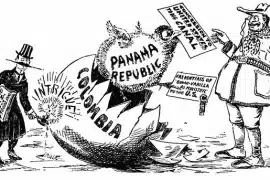Revisiting the concept of the political following its robust revival through the works of figures as disparate as Hannah Arendt and Carl Schmitt, the Hungarian political theorist Agnes Heller once remarked that “the controversy over the concept of the political is of a more serious nature than yet another family quarrel among paradigms; it is about the relevance or irrelevance of political philosophy to our times. The concept of the political came to the rescue of political philosophy, after it had fallen victim to too much science, too much compromise, too much realism” (Political Theory Today, 336). Being caught up in-between the facticity of realism and the unmoored circle of normativism, political philosophy indeed has forgotten that the political is neither a sphere of institutional activities nor is it merely a normative order that stipulates the ethical horizon of public-political activities; it is rather a concept that explains how a society is constituted and ordered. There is no society without the political. The Greeks, as Cornelius Castoriadis correctly pointed out, might have invented the art of politics, but it is misleading to say that the political started with the Greeks, for the political is that which describes how a society is politically ordered and how it organizes power. Despite the apparent tangibility of Heller’s insight, the concept of the political barely received any attention from philosophers all too concerned with normativism. Writing in late twentieth century, the French political theorist Claude Lefort had to lament over the lack of philosophical exploration concerning the precondition proper to politics, that is, the political. For Lefort, in order to understand the rivalry of existing political discourses and practices, one needs to look precisely at the common precondition of what otherwise appears to be discordant political tendencies. Although there has been a surge of scholarship on and around the concept of the political, Lefort’s concern is far from being irrelevant. This is all the more truer for the scholarship centering nationalism. Surely, late twentieth century had witnessed a vigorous growth of interest in the historicity of nationalism, driven by the desire to move beyond the autobiographic self-presentation of the discourses of nationalism. Understandably, such a task required a historical and genealogical reconstruction of the idea of nation and nationalism. The works of Benedict Anderson, Ernest Gellner and Partha Chatterjee, as we know, are foremost in the effort to provide us with a genealogical understanding of nationalism. However, the historical account of the emergence of nationalism cannot adequately explain the political horizon that comes out of the anti-colonial national liberation movements and the eventual founding of nation-states. Likewise, the study of the discourse of nationalism does not — and cannot — solely account for the political horizon of the post-colonial nation-states, for the coming together of nationhood and statehood were conditioned by the event of national liberation movements. The understanding of the political in the post-colony requires as much attention to the evental nature of the coming together of nation-and-state as it does to the discursive structure of nationalism. The contingency of the event — coupled with the absolute certainty of the self-(re)presentation of the nation — generated a political foundation of the polity that cannot be reduced to the discourse of nationalism. Of course, this foundation is never static, reinvented and refurnished as it is by the ideological apparatus i.e. state and the political movements that contest and refound the foundation in heterogeneous ways. Today I want to speak about the conceptual debates surrounding the concept of the political in the postcolonial nation-states. I would call the state of the political in the post-colonial nation-states as the national, which is a distinct category from nationalism. Nationalism, I would claim, is the mode of accessing the national). But before doing that, we need to do some groundwork by way of explicating the concept of the political. There is probably no better place to start than Paul Ricoeur’s 1957 article called “The Political Paradox.”
In the aftermath of Khrushchev’s secret speech and the USSR’s invasion of Hungary, Paul Ricoeur sought to define the specific form of evil that underlies political violence. The immediate task that Ricoeur set for himself was to show that the political is not reducible to the economic sphere. What Ricoeur calls “the polity” — which is equivalent to what we mean by “the political” — forges a distinct bond between the people and the state. This is not primarily a communal bond, but rather a political bond that emanates from the state to the citizens and not vice versa. For example, in the social contract theory, we see that pre-political individuals from the state of nature opted to give up their rights to the rationally chosen sovereign, who, in turn, confers political rights upon the citizens. Without the sovereign — regardless of whether it’s Hobbes’ or Rousseau’s sovereign– there can be no political community in social contract theory. Yes, there’s an element of ideality in such an image of the polity, but, as Ricoeur tells us, it is a real ideality. However, the autonomy of the political is unable to explain the totality of political order by itself. Here comes the question of politics. When we move from the state to the government, says Ricoeur, we move from the political to politics. The political necessarily involves politics. If the political is retrospective in the sense that it produces its ideality through reflection, politics is prospective. It seeks to act and function keeping in mind what awaits in future. While the political locates the place of power in a society, politics is essentially concerned with “conquest and preservation of power” (History and Truth, 255). The political thus does not a priorily involve evil; it is rather politics that deals with power, hence being complicit in evil and virtue of managing power. Distinguishing the political, Ricoeur defines politics in this manner: “politics is the sum totals of activities which have for their object the exercise of power, therefore also the conquest and preservation of power. Step by step, politics will encompass every activity whose goal or effect will be the division of power” (255). What is essential to keep in mind is the question that even when politics generates evil, it is still conditioned by the ideality of the political. How so? Since the polity is ideal, it is prone to “untruth.” I have my doubt about the pertinence of the term “truth” here, but that’s aside, what Ricoeur wants to say is that the polity essentially comes with the ideality of equality — equality before law, for example. But this ideality of community also legitimizes the reality of governing and maintaining order. Indeed, as Ricoeur elegantly puts it, the political has value because of its very abstraction– such is peculiar labyrinth of polity (253). Because of the reason that the political merely conditions politics — that is, it does not determine politics; the political is prone to rationalizing those politics that might not ultimately correspond with its ideality.
[I’m reminded that Castoriadis questioned the identification of the political with the institution of society. Instead he preferred to delimit the concept of the political to the arrangement of explicit power in a society. While I concur with Castoriadis’ concern over an over-generalized notion of the political so as to conflate it with the structuring of society, I do think that it’s possible to explain the political ordering of a society without making the political synonymous with the social]
Clearly, what I am calling the political is not merely a distinct sphere of society. Unlike liberal ontology, where political sphere is distinguished from the social and the personal, the political does not seek to denote an ontologically distinct sphere of society. This is because of the reason that the political is primarily the form that gives order to a society. In other words, the political concerns the ordering of society in determining the sites where politics can take place and where it cannot, the principles that are susceptible to politicization, the subjects who are legitimate and so on. The political is nothing outside of history– it’s a product of history. But I would also claim that every foundation of the political takes place through events that abruptly generalize themselves. This brings us to the question of the grounding of political foundation in a society. The fiction of social contract theory, as we know, renders the moment of foundation of a society as the outcome of a rationalist and self-interested process. In Foucauldian term, this tendency to rationalize the abrupt and contingent origin of the foundation would be “de-eventalization.” Indeed, all narrative of political origin renders the moment of their birth as rationalist culmination rather than portray it as a sudden event. The question of foundation– or grounding — is important because it helps us to understand the differences we see in the organization of societies across the world. Why indeed the question of security and spying becomes a burning political question in the United States, while the same question does not accrue much political attention in, say, a country like Bangladesh? or why the contest over minimum wage becomes a political question par excellence that mobilizes the foundational element of polity in Bangladesh, while similar movement for minimum wage remains at the fringe of political contests in the US? Clearly, the power distribution of society (which, according to Ricoeur, is the concern of politics) –or, if you prefer, the production relations of society — largely influence the viability of these issues and contentions. But what I am trying to problematize is the question regarding the possibility of posing disputes vis-a-vis the foundation of the political community. If the question of security, private property and liberty are more susceptible to be politicized in the US, it needs to be understood in terms of the political foundation that this political entity inhabits. The foundation of a polity, as Rousseau told us in The Social Contract, always requires be rejuvenating and re-invoking for the continual reproduction of the political community. That quotidian ideological state apparatus and even extra-institutional political movements reinforce the foundation is clear. The foundation, of course, is not something static, nor is it ever complete. Indeed, Ernesto Laclau and his followers have made a legitimate case regarding the impossibility of founding society once and for all. What their post-foundational political theory claims is that no society is founded upon a final ground, and the foundation is always contingently determined i.e. the abruptness of event forms and gives birth to what we call foundation. Since the society is not a closed whole, says Laclau, it is thus impossible to institute society without leaving the possibility of rupture.
This ontological understanding of the political as the order-giving form of society necessitates us to distinguish it from politics as a form of practice. In a recent survey of post-foundational political thought, Oliver Marchart, a Laclauian, theorized the political difference as the central problematic of political thought in our time: “As difference, this difference presents nothing other than a paradigmatic split in the traditional idea of politics, where a new term (the political) had to be introduced in order to point at society’s ‘ontological’ dimension, the dimension of the institution of society, while politics was kept as the term for the ‘ontic’ practices of conventional politics (the plural, particular and, eventually, unsuccessful attempts at grounding society)” (Post-foundational Political Thought, 5). As it is clear from Marchart’s account, he sees political difference through the mirror of ontological difference. The problem with Marchart’s account is its excessively ontologized form. Although I agree with Marchart in general, I would also stress on the historicity of the distinction between the political and politics. This distinction must be a historico-ontological difference. For the historical events (mediated by political action) found new regime of the political, and the conditions of politics is determined by the singular historicity of those events. The political only conditions politics— it does not lay out the course of action. Here it is needed to make a difference between Great Politics and Petty Politics. While petty politics maintains and reproduces the order of a specific regime of the political (“the police” in Rancierean lexicon), great politics concerns itself with that very order of the political, and thus renders a new political horizon by way of disputing the order (but then again, all great politics eventually ends up producing a new order of the political, because it is impossible to constitute society without the order-giving form). That is to say, it is politics which brings forth a new political horizon; it is that what gives birth to historically specific regime of the political.
In the horizon of post-colonial theory, a slew of subaltern thinkers have initiated the project of understanding the political in the postcolonial context or, what Chatterjee has called “most of the world.” Dipesh Chakrabarty and Partha Chatterjee are probably two of the more important postcolonial thinkers in this regard. In Provincializing Europe, Dipesh Chakrabarty termed the concept of the political as one of the two conceptual gifts of nineteenth century Europe to the rest of the world (the other being, historicism). The European idea of the political, coupled as it is with the historical, came with the ideality of educated citizens who participate in politics, elect a representative government, political sphere becomes distinct from the social and the religious, contest over discourse takes place in public space and so on. Chakrabarty rightly calls for the undoing of the ontological assumption of what he calls the European idea of the political. Revisiting Guha’s important critique of Hobsbawm’s conceptualization of peasant rebellion as prepolitical, Chakrabarty also rightly refuses to see peasants as pre-political subjects. In liberal and even in certain Marxist historiography, the political was hypostatized as a sphere of social existence where procedures and contests over power takes place. For liberal historiography, the peasants were pre-political because they lacked the knowledge and self-awareness essential to the autonomous individuality that liberal idea of the political presupposes. For historicist version of Marxist historiography, the externality of the peasants from capitalism put them in an extra-political position. Taking cue from Guha, Chakrabarty — in my opinion, correctly– disputes such stagist conception of the political. I agree with Chakrabarty thus far. What I find problematic in his account, however, is the assumption that the political that reigns in the postcolony is heterogeneous and non-singular, that is, the political was an amalgam of historicist sphere of the political and the historicization-resisting heterogeneity that dispels the eternal waiting room of historicism: “My point is that the moment of vision that effected a “cessation of the historical world” included plural and heterogeneous ways of seeing that raise some questions about the analytical reach of the European category “imagination.” (Chakrabarty, 174). Following this trail of argument, Chakrabarty then goes on to say that the political in the colony has been non-one, as if it is a mere assemblage of two worlds. Surely, Chakrabarty could have claimed that the political is never a closed whole (as Laclau does), but he seems to remain caught up in the duality of a “Europe-gifted” historicist sphere of the political and the subalternist/historicization-resisting ruptures external to the political. Such a duality, in my opinion, misses the mutual conditioning of what Chakrabarty himself calls homogeneous and heterogeneous ideas of the political. If post-colonial societies are to be understood as coherent (I use the term coherent in its epistemological sense) political orders, then we will have to consider how postcolonial political community produced order out of its contested past. and for that we need to look at the founding events of postcolonial political communities. In so doing, I will try to show that the historicist time of what Chakrabarty calls the “prosaic” and the “historicization-resisting” time of the “poetic” came are not two disparate phenomena. Instead, these two elements logically conditioned each other so as to form an immanent plane of the national.
The events of national liberation movements, as we all know, were contrived through long and tortuous struggles. These events invariably have resulted into the political community-form that we call nation-states. Most of these events traversed through a path that was abrupt and fraught with contingency, but the movements for national independence, in the later half of twentieth century, became so universal that we will also have to admit the general character of those events. At the heart of nationalist anti-colonial struggle resided this invincible source of political legitimacy: by virtue of being a distinct nation, we have the right to rule over ourselves. The nation, in other words, sought to realize itself through the state. Indeed, what the colonial nations took as a conceptual “gift” from their European master-cum-counterparts is not so much the liberal ideal of the political that Chakrabarty has in mind, but rather the idea of the political community that we call nation-states. If the organization of the political sphere in the post-colonial nation-states appears to be functionally dissimilar to the European nation-states, it is not because of corruption, lack of procedural efficiency and other instrumental reasons. In order to deal with this problematic, we need to look at the concept of the political generalized by the grounding events of national liberation movement and by the eventual emergence of the nation-state.
Benedict Anderson, among others, provided us with a historical account of how the nation became the political community-form par excellence of this historical time. By concentrating on the modular-form of the nation, Anderson shows how the condition of possibility for thinking a “we” became possible owing to print-capitalism. Although the modular-form that Anderson theorizes conditions the possibility of nations, the process of giving content to the form is a different matter. Sudipta Kaviraj’s study of the vicissitudes of the changing “we” — that is, the collective subject — in anti-colonial political literature sheds light on the process of primacy of a negative disidentification with the colonizer in colonial nations. It is often said that nation precedes state– yes, the national liberation movement did presuppose that they have a right to state because of the presence of the nation. However, this imagination of nation did not put itself as a complete whole that merely deserved the state. Rather, the political demand for the state emerged as a necessary step for the becoming of the nation. Let us consider the case of Ahmad Sofa, one of the more insightful political thinkers of post-independence Bangladesh. In his very well known text called Bangali Mussalmaner Mon (which could be translated as the Political Psychology of Bengali Muslim), Sofa observed that Bengali Muslims have neither been Bengali nor Muslim. So what were they? They were a community eternally damned, which, says Sofa, led them to take recourse to a politically impotent world of myth and fantasy. And yet, Sofa claimed Bengali Muslim have no way of being salvaged other than having a sovereign state, that is, only under the condition of modern state can Bengali Muslims hope to become a nation. If Bangali Mussalmaner Mon is the prosaic projection of the nation, then Sofa’s much-acclaimed novella called Onkar (The Om) instantiated the affective moment when the historically non-subject Bengali Muslim community extraordinarily comes to recognize the nation (a point that Sofa figuratively makes by narrativizing the story of a deaf woman uttering the word “Bangla” at the expense of her life). As in this case, the “poetic” trajectory of the latter text does not so much cede from the historical time, as rather they complement and condition each to form the political. To repeat, the prosaic and the poetic indeed were not merely separated– the poetic instantiated the nation and its attendant legitimacy, while the prosaic documented the injustices within which the people lived. The nation — unlike the self-interested and self-sufficient people of liberal conception of the political– constitutively necessitated the possibility of a state whose nature was bound to be quite different than that of classical liberal states.
Thus far I have sought to explicate two moments of the national. Firstly, it presupposes an ideal horizontal equality of citizens by virtue of their belonging to that national community. Secondly, I have argued that the state was envisaged as an active agency that would materialize the latent-but-unfinished equality of national citizens. The seeds of developmentalist or interventionist state had already been present in the formation of those postcolonial polity. Partha Chatterjee provides a contemporary state of the political by distinguishing the abstract homogenized time of citizenship and the realm of governmentality that is mediated by the negotiation between the government and the population. The bounded seriality of governmentality, as opposed to the unbounded seriality of the nation, has displaced the homogeneous political by the social. To quote Chatterjee: “the classical idea of popular sovereignty, expressed in the legal-political facts of equal citizenship, produced the homogeneous construct of the nation, whereas the activities of governmentality required multiple, cross-cutting and shifting classifications of the population as the target of multiple policies, producing a heterogeneous construct of the social” (37). Turning Gramsci on his head, Chatterjee indeed calls the realm of the state-population negotiation as the “political society.” Chatterjee is clearly following the trail of argument that follows from Foucault’s observation that the state has been governmentalized, meaning that it participates in the nurturing and fostering of life, and not so much in being limited to asserting its authority over life and death of its subjects. The political is shadowed here by the governmental and the social — so much so that Chatterjee calls the latter as political society. Surely, Chatterjee is right about new practices of governmentality and the way in which the nature of power has been changing in the global south, but the antinomy and duality that he establishes between the homogeneous political and the heterogeneous social (that he calls political society) remains caught up in a binary that obfuscates our understanding of the political in postcolonial nation-states. Why so? The events that founded nation-state through anticolonial struggle did not seek to resolve the contradiction at the level of possessive/propertied individuality, nor did they sit upon a firm identity between the nation and the state, thus not resulting into a positive identity between the law and legitimacy (theorized by Weber). Rather, the idea of an interventionist government — one that would render justice, at least in the minimal sense — was constitutive of the the national. The prospective governmentality is conditioned by– and not opposed to — the political. Secondly, as Ricoeur drew our attention to, the idea of political community cannot do without the moment of equality (as in the equality in front of the law). How does the moment of equality reckon with the moment of order and hierarchy then? The national did found a political community, and the act of foundation, as we know, is inseparable from the production of order. However, the order need not be understood as the sociological order of the society as such. Rather, the political order, by way of producing legitimacy, stipulates the circuits of political subjectivation, the location of political power, the object of politics, and so on. If the paralegal activities are the form in which government and population negotiate, then we need to look at the historical ontology of the political in the post-colonial world. The antinomy and binarization that Chatterjee resorts to, despite its analytical value, make it impossible to discern the nature of the political in most of the world. Insofar as the political grounds the social, the changing nature of the social must be understood in correspondence to the historical ontology of the political.
In recent times, following the event of Shahbag movement, the question concerning the concept of the political has attained rather immediate importance. The event of 1971 — providing foundation to the self-described linear historicity of Bengali nationalism — inaugurated a new political horizon. At the superficial level, limning out the line between tradition and historical becoming, it gave expression to a specific way of national-political life that bases itself on a continual renewal and reliving of the cultural-historical “essence” of the perceived community. At a more deeper level, it sets up an indeterminate, but bordered, way of political interpretation, signification and, ultimately, the process of meaning-production. Bengali nationalism is just a specific way of accessing the national— that is, both the politics of nationalism and anti-nationalism both are under the condition of the national. The historical ontology of the national not only introduced political order into society, but also privileged certain forms of subjectivation as the modes of accessing the political. The evental presence of “1971” works as a marker of certainty, as it lays out the concepts of political antagonism (for and against 1971), subject and non-subject (freedom fighters and collaborators/Razakars), the narrative of political origin and the promised destination, and so on. If the national is being presented as an ontological horizon, the evental presence of the liberation war of 1971 contributes toward more actualised drawing of political lines.
In conclusion, while musing about events such as the Shahbag movement, it is essential that we think through the conditions of existing partisan contentions. As so often, all-too-banal discourses emanate from the failure to understand the organization of the political, thus mistaking the clash of politics as the clash of the political. For example, the discourse that claims that the political in Bangladesh is split between the secular-nationalists and Islamists i.e. the former is the political sphere of European-like liberalism, while the latter is a sphere of heterogeneity external to the homogeneous political, fails to look at the immanent plane of the political that makes such diverging politics possible. This apparently scholastic debate concerning the concept of the political, I would forcefully say, could play a vital role in enabling politics to aim for the society that it seeks to institute, however impossible the task of (re-)founding a society may be.







